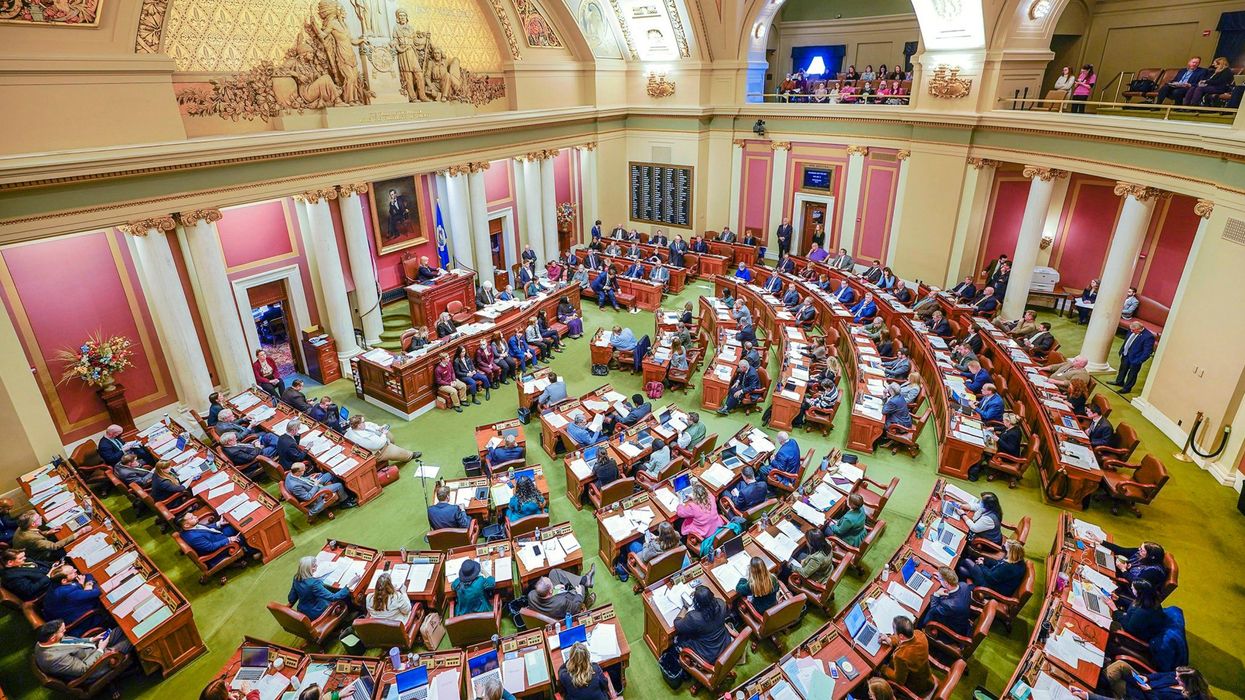"Minnesota is at the forefront of addressing the PFAS and toxic chemical crisis," Safer States national director Sarah Doll
said in a statement. "This law shows that states are a key part of ensuring that communities are safe from PFAS."
"PFAS was developed in Minnesota, and it's powerful that it ends here, too."
PFAS are a class of chemicals that have been
used by industry since the 1940s. They are common in firefighting foam and stick-, stain-, grease-, and water-resistant products. However, they have spread extensively throughout the environment and human bodies where they do not break down—hence the moniker "forever chemicals." This is a problem because they have also been linked to an expanding list of health concerns including cancer, immune suppression, reproductive and developmental issues, and thyroid and liver ailments.
"Documentation proves that manufacturers knew as early as 1950 that PFAS was toxic and yet products that contained it were promoted and sold to make a profit," Clean Water Watch Minnesota state director Avonna Starck
said in a statement. "PFAS was developed in Minnesota, and it's powerful that it ends here, too."
The new law closes a loophole in a 2019 law banning PFAS in firefighting foam, bans PFAS in certain products beginning in 2025, mandates that manufacturers disclose the use of PFAS by 2026, and bans the chemicals in all products not essential for public health by 2032. The legislation, which passed the House and Senate with bipartisan support on May 19, targets 13 different product categories—the most of any state in the nation. In addition to firefighting foam, menstrual products, dental floss, cookware, and cleaning supplies, no one can sell PFAS-containing food packaging, cosmetics, textiles, carpets, fabric treatments, upholstered furniture, children's products, and ski wax.
"This is the first step of the major changes needed to protect families and our environmental legacy," state Rep. Jeff Brand (D-18A), who contributed language to the new law, said in a statement.
Minnesota's law builds and expands on PFAS regulations in other states, Safer States pointed out, including specific use bans passed by California, Colorado, and Washington, and a disclosure law passed in Maine in 2021. But it also has a state-specific origin.
The bill was championed by Amarah Strande, a young woman who grew up near a 3M PFAS disposal facility and was diagnosed with a rare cancer when she was 15, an experience she shared with other classmates at Tartan Senior High School.
"I've spent the last five years fighting cancer with every ounce of my being," she
said in January. "And I will for the rest of my life. Corporations must stop the production of these toxins and be held accountable and pay for the damage they've done. Through no fault of my own, I was exposed to these toxic chemicals. And as a result, I will die with this cancer."
Strande's prediction came true four months later—she died in April two days before her 21st birthday. The PFAS regulations have been named "Amara's Law" in her honor.
"Amara testified not because of her own situation but because she believed she could be a voice for her community," her father Michael Strande said in a statement. "Amara was an advocate for those who were sick and suffering with a disease or illness brought about from these dangerous chemicals. Dana, Nora, and I are grateful for the legislators who made the bold choice to pass Amara's Law. This law will protect the people of Minnesota for generations to come."



